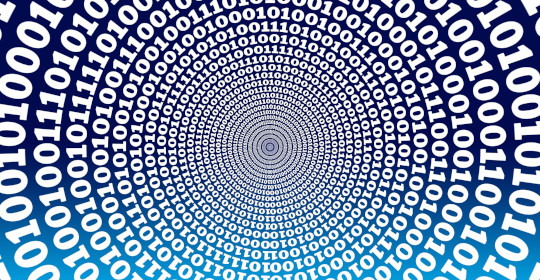Roy Zuvers? Stephen Tonnison? Paul Parkhurst? Anonymous?

Question for Quote Investigator: Computers are known for performing blazingly fast calculations with excruciating precision. Computers are also known for inescapable bugs. A humorous statement combines these attributes:
Computers make very fast, very accurate mistakes.
Would you please explore the provenance of this remark?
Reply from Quote Investigator: The earliest match located by QI appeared in a message posted on July 12, 1991 by Roy Zuvers to the newsgroup misc.handicap of the Usenet distributed message system. Zuvers was posting from Fidonet, a network of computer bulletin board systems. The quip used the singular “Computer” instead of “Computers”. The statement occurred in a signature line, and no attribution was provided. Boldface added to excerpts by QI:1
* DeLuxe 1.1 #6289 Computer Make Very Fast, Very Accurate Mistake
Currently, the originator of the expression remains anonymous. Perhaps future researchers will discover earlier citations.
Below are additional selected citations in chronological order.
In 1977 a precursor occurred in a Mount Carmel, Illinois newspaper within a column by John Keasler which printed a farcical interview with nonsensical replies. Keasler used the phrase “accurate mistakes”, but the topic was not computers:2
Oh yes, I admit freely to making mistakes. I can only say they were correct and accurate mistakes, not wrong mistakes.
On July 12, 1991 an instance with “Computer” appeared in a Usenet newsgroup as mentioned previously.
On November 14, 1993 Stephen Tonnison posted an instance using the plural “Computers” to the Usenet newsgroup alt.internet.access.wanted. The statement occurred in a signature line with no attribution:3
þ CmpQwk 1.31 #333 þ Computers make very fast, very accurate mistakes
On November 30, 1993 Paul Parkhurst posted an instance to the Usenet newsgroup comp.sys.apple2. The statement occurred in a signature line with no attribution:4
“Computer Make Very Fast, Very Accurate Mistakes..”
On September 29, 1994 Melvin Clark posted a variant with a deliberate misspelling to the Usenet newsgroup comp.sys.ibm.pc.hardware.systems:5
Computers make very fast, very accurate missteaks!
In October 1994 a newspaper columnist in Helena, Montana posted a collection of items gathered from the internet:6
Taglines are the one line equivalents of the snail mail “PS” or post script. Some are computer oriented: . . .
“Computers make very fast, very accurate mistakes.”
In 2003 the joke appeared in “Murphy’s Law: The 26th Anniversary Edition” compiled by Arthur Bloch:7
Junior’s Law
Computers make very fast, very accurate mistakes.
In conclusion, the earliest match located by QI appeared in the signature line of a Usenet message from a bulletin board user in July 1991. QI conjectures that the joke first achieved wide distribution amongst computer bulletin board users. The creator remains anonymous.
Image Notes: Concentric circles of binary data from geralt at Pixabay. Image has been resized and cropped.
Acknowledgement: Great thanks to Joshua Braun whose inquiry led QI to formulate this question and perform this exploration.
Update History; On January 4, 2022 the 1977 citation was added to the article. On March 18, 2025 the format of the bibliographical notes was updated.
- 1991 July 12, Usenet discussion message, Newsgroup: misc.handicap, From: Roy Zuvers, Subject: nfb and nls. (Google Groups Search; Accessed December 31, 2021) link ↩︎
- 1977 June 2, Daily Republican-Register, An interview: What time did you get home? by John Keasler, Quote Page 2, Column 4, Mount Carmel, Illinois. (Newspapers_com) ↩︎
- 1993 November 14, Usenet discussion message, Newsgroup: alt.internet.access.wanted, From: Stephen Tonnison, Subject: 614 access. (Google Groups Search; Accessed December 31, 2021) link ↩︎
- 1993 November 30, Usenet discussion message, Newsgroup: comp.sys.apple2, From: Paul Parkhurst, Subject: applesoft <-> text basic. (Google Groups Search; Accessed December 31, 2021) link ↩︎
- 1994 September 29, Usenet discussion message, Newsgroup: comp.sys.ibm.pc.hardware.systems, From: Melvin Clark, Subject: ESDI Drives. (Google Groups Search; Accessed December 31, 2021) link ↩︎
- 1994 October 16, The Independent-Record, Computer Update: E-mail has its own parlance by John McCluskey, Quote Page 2D, Column 1, Helena, Montana. (Newspapers_com) ↩︎
- 2003, Murphy’s Law: The 26th Anniversary Edition, Compiled by Arthur Bloch, Chapter: Cyber-Murphology, Quote Page 93, A Perigee Book, New York. (Verified with scans) ↩︎